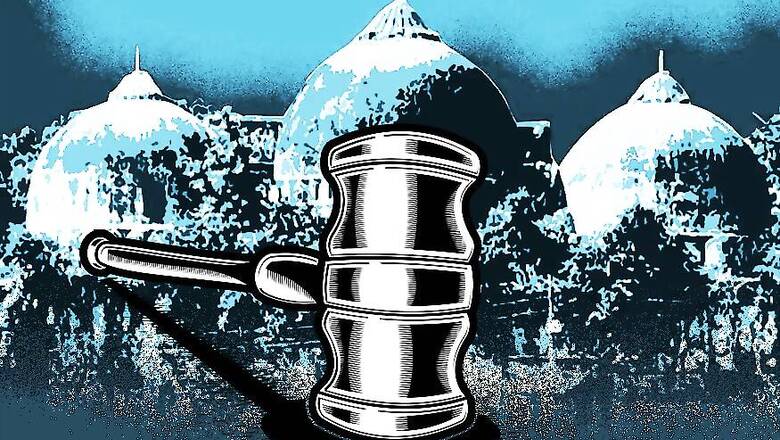
views
New Delhi: Rajiv Gandhi had a proposal to amicably resolve the Ayodhya dispute that would have involved five Supreme Court judges with a secular composition, determining ‘whether there was any evidence that Babri Masjid was constructed after the demolition of a living Ram temple’.
All India Babri Masjid Action Committee (AIBMAC) Convenor Zafaryab Jilani, who held a series of meetings with the Congress leadership at the peak of the Ayodhya dispute, told News18 that the request was turned down as the CJI cited insufficiency of judges to handle the case.
“Since our counsel was Siddhartha Shankar Ray, after Rajiv Gandhi was defeated, Gandhi asked Ray that he wanted to meet us. So, I and Mr Mushtaq Ahmed Siddiqui, members of the action committee, both of us went, under the instruction of Siddhartha Shankar Ray on the condition that we will not talk in the presence of Buta Singh. Rajiv Ji asked his secretary to bring a typed letter. He gave that to us in which the proposal in the SC that ‘we ask to give its opinion whether there was any living Ram Temple in the disputed place,” said Jilani who is now the counsel for All India Muslim Personal Law Board in the Babri Masjid case pending at the Supreme Court.
According to Jilani, Rajiv Gandhi’s suggestion was that five senior most judges of the SC form a commission and decide this matter to see ‘whether there was any evidence to the effect that Babri Masjid was constructed after the demolition of a living Ram temple’. The letter was sent to the Chief Justice of India and the CJI replied that there weren’t sufficient judges.
“I had put a question to Rajiv Gandhi why do you think that five senior most judges will be secular and impartial? Then he asked us not to worry. Then he told us that in the commission one will be Hindu, one will be Christian, one will be Muslim, one will be Sikh and the other would be Parsi. It is then we kept quiet,” said Jilani.
Zafaryab Jilani, then a young lawyer, who became the convenor of the Babri Masjid Action Committee after it was formed in 1986, told News18 that, “The tacit deal allegation by Arif Mohd Khan has been made several times and is not new and if Rajiv Gandhi would have been alive then the Babri dispute would have been resolved peacefully.”
Former Union Minister, Arif Mohd Khan in a recent article for News18 stated that a legislation overturning Shah Bano Verdict and to suppress agitation by the Babri Masjid Action Committee was a part of tacit deal between the personal law board and the Rajiv Gandhi government. Jilani who was one of the founders of the action committee rejects any suggestions of a quid pro quo between the the government and AIMPLB.
On 1 February 1986, Faizabad District Judge KM Pandey ordered the Babri Masjid be unlocked. He observed, “[...] Muslims are not going to be affected by any stretch of imagination if the locks of the gates are opened and idols inside the premises are allowed to be seen and worshipped by pilgrims and devotees. Heavens will not fall if the locks of the gates are removed”.
“When this meeting was held with Rajiv Gandhi on the issue of personal law and the draft of that act was discussed, at that very time, Maulana Ali Mian had asked Rajiv Gandhi that in the manner you have settled this issue, settle the Babri issue too. Gandhi had promised to solve that issue too. So, there was no question of any bargaining. Otherwise what the use of the December 1990 resolution by the Personal Law Board. Rajiv Gandhi was alive at that time and Prime Minister Chandrasekhar was in support of Gandhi,” said Jilani.
Arif Mohd Khan has also stated how Maulana Abul Hasan Ali Nadwi, the then Chairman of the MPLB was severely critical of the Babri masjid Action Committee and movement.
“If we read the autobiography of Maulana Abul Hasan Ali Nadwi, the then Chairman of the MPLB carefully then one is struck by the strong language he has used against the leaders of the Babri Masjid Action Committee and movement. In Volume 4 on Page 130, he squarely blamed these leaders for provoking ‘Hindu revivalism’ and described their movement as leading Muslims on the path of ‘collective suicide,” said Khan.
However, Jilani said that any such comment was completely false and baseless.
“Maulana Abdul Hasan Ali Nadvi was the president of the board when the resolution was taken. In 1990, the board had taken a decision that not an inch of the Babri masjid land can be given or bartered or be surrendered. The PLB meeting held in Delhi in 1990 December had resolved that whatever has been done by the Babri Masjid Action Committee and the Babri Masjid Women Committee must continue with their efforts and this was the endorsement of the activities of the action committee by the board when Nadvi was himself the president. No such observation has ever been made by Nadvi blaming the action committee,” said Jilani.
Jilani, who was a part of secret meeting with Shankracharya of Kachikot refuted any such observation. “Before the 1990 resolution, in 1986 itself there was an effort by two governors, Mr Krishna Kant and Mr Yunus Salim to have a meeting of Maulana Nadvi with Shankracharya of Kachikot. This meeting took place sometime in August that year and after the meeting, I was called along with Mr Azam Khan, and Advocate Abdul Mannan, all members of the action committee. In closed room Shankracharya had said that ‘if the property in dispute is given in his charge till the final decision of the case, then he will ensure that a wall is constructed around the structure and no one can perform any puja or namaz there. He would also ensure that it would remain in his custody.’ We agreed with his proposal as the property would be in the custody of the receiver, Shankracharya and had no objection to it,” said Jilani.
“Shankracharya had asked for a draft to this effect and we came back to the residence of Advocate Abdul Mannar and prepared a one page draft to this effect and handed it over to Maulana Ali Mian. The next day we met Shankracharya and he said that he was helpless as he was prevailed upon by Ashok Singhal, Jagraj Kishor, and other leaders of the Vishwa Hindu Parishad, and that I should not be interfering in the matter.’ This was told to us later by Ali Mian too and that is what he refers to in his book too,” said Jilani who believes that Khan has always been accused of being at loggerheads with the ‘Muslim leadership.’
Jilani maintains that the unlocking of the gates to Babri Masjid had “happened before the government had taken the decision to introduce any such bill to overturn the verdict in the Shah Bano case in the parliament.”
“The government had not announced its decision to reverse the SC verdict on January 15, 1986, but made such an announcement subsequent to it. This is because, the meeting of the Muslim Personal Law Board to take a stock of situation was held on February 2, 1986, at Delhi. I was a part of the meeting, and in that meeting it was resolved that we will start our agitation, so if the government would have made any such announcement then there was no need for us to agitate. So the entire theory of Arif Mohd Khan is misplaced,” said Jilani.












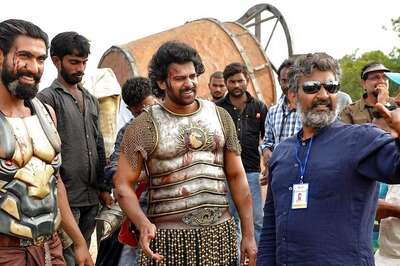
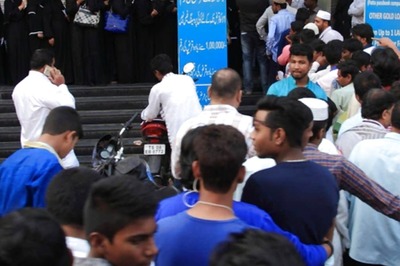
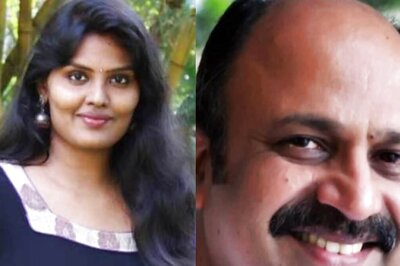
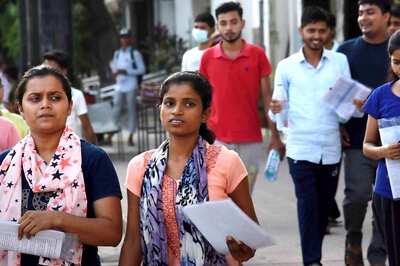
Comments
0 comment